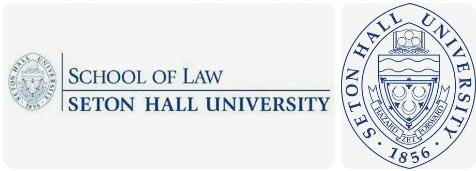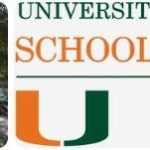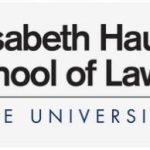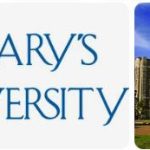Seton Hall University School of Law was founded in 1951 and has since become one of New Jersey’s leading law schools. The school has a rich history of providing quality legal education to its students, as well as producing some of the most successful lawyers in the state. Seton Hall’s faculty has included prominent legal scholars and practitioners, including Supreme Court justices, U.S. Attorneys, state judges, and attorneys from major law firms throughout the country. The school’s curriculum emphasizes practical experience through its many clinics, externships, and research opportunities. In addition to preparing students for the bar exam and their future careers, Seton Hall also offers a variety of joint degree programs with other universities such as Rutgers University and Fairleigh Dickinson University. Moreover, Seton Hall is known for its commitment to public service; each year the school awards scholarships to students interested in working with underserved communities in New Jersey or abroad. Seton Hall Law School is also home to several student organizations that promote social justice causes like immigration reform and criminal justice reform. Through its commitment to providing quality legal education and its dedication to public service, Seton Hall Law School continues to be an outstanding institution for aspiring lawyers.
Seton Hall University School of Law is located in the state of New Jersey. As one of the leading law programs, Seton Hall University School of Law has a high average LSAT score of 158-161 when recruiting new students. As a return, the median starting salary for law graduates reaches $125,000 per year. See the following table for detailed admissions information and career profiles of Seton Hall University School of Law.
Admissions: Seton Hall University
Seton Hall University School of Law is a highly competitive school for aspiring lawyers. The school’s admissions process is selective, with an acceptance rate of only 32%. The average GPA of students accepted to the school is 3.46 and the median LSAT score is 157. Students who are admitted come from a wide variety of backgrounds and bring a range of experiences to the classroom. The student body consists of approximately 500 students from over 30 states, as well as several countries including India, China, and South Korea. Additionally, Seton Hall University School of Law has a strong commitment to diversity in its student body; over 30% are minorities or international students. As part of its commitment to diversity, Seton Hall offers scholarships specifically for minority applicants as well as other financial aid programs such as need-based grants and loans. Seton Hall also offers specialized dual degree programs that combine law with business or health administration degrees. These programs provide an opportunity for students to gain additional skills and expertise in areas related to their legal studies while still completing their JD degree in three years.
| Fall 2019 Admissions and Enrollment Statistics | |
|---|---|
| Total number of full- and part-time applicants | 3,392 |
| Total number of full- and part-time acceptances | 1,679 |
| Overall acceptance rate | 49.5% |
| Total number of full- and part-time first-year students enrolled | 357 |
| Number of full-time program applicants | 2,804 |
| Number of full-time program acceptances | 1,453 |
| Full-time acceptance rate | 51.8% |
| Number of first-year full-time students enrolled | 240 |
| Number of part-time program applicants | 588 |
| Number of part-time program acceptances | 226 |
| Part-time acceptance rate | 38.4% |
| Number of first-year part-time students enrolled | 117 |
| Fall 2019 GPA and LSAT Scores | |
| 25th-75th percentile GPA scores for all students | 3.13-3.64 |
| 25th-75th percentile LSAT scores for all students | 154-160 |
| 25th-75th percentile undergraduate GPA for full-time students | 3.21-3.68 |
| 25th-75th percentile LSAT scores for full-time students | 158-161 |
| 25th-75th percentile undergraduate GPA for part-time students | 3-3.47 |
| 25th-75th percentile LSAT scores for part-time students | 150-156 |
Careers: Seton Hall University
| Bar Statistics (Winter and Summer 2018 administrations) | |
|---|---|
| State where the greatest number of first-time test takers took the bar | NJ |
| School’s bar passage rate for first-time test takers | 88.9% |
| Statewide bar passage rate for first-time test takers | 84.7% |
| Class of 2018 Graduates | |
| Total graduates | 304 |
| Graduates employed at graduation | 80.7% |
| Graduates known to be employed nine months after graduation | 96.7% |
| Starting Salaries of 2018 Graduates Employed Full-time | |
| 25th percentile private sector starting salary | $92,500 |
| Median private sector starting salary | $125,000 |
| 75th percentile private sector starting salary | $145,000 |
| Percent in the private sector who reported salary information | 52% |
| Median public service starting salary | $39,179 |
| Areas of Legal Practice (Class of 2018) | |
| Percent employed in academia | 1.0% |
| Percent employed in business and industry | 12.5% |
| Percent employed in government | 5.6% |
| Percent employed in all judicial clerkships | 39.3% |
| Percent employed in law firms | 39.9% |
| Percent employed in public interest | 1.0% |
| Percent employed in an unknown field | 0.7% |
| Percent employed in a judicial clerkship by an Article III federal judge | 4.4% |
| 2018 Graduates Employment Location | |
| Graduates employed in-state | 70% |
| Graduates employed in foreign countries | 0% |
| Number of states where graduates are employed | 13 |
| New England (CT, ME, MA, NH, RI, VT) | 0.7% |
| Middle Atlantic (NY, NJ, PA) | 89.8% |
| East North Central (IL, IN, MI, OH, WI) | 0.4% |
| West North Central (IA, KS, MN, MO, NE, ND, SD) | N/A |
| South Atlantic (DE, DC, FL, GA, MD, NC, SC, VA, WV) | 1.1% |
| East South Central (AL, KY, MS, TN) | N/A |
| West South Central (AR, LA, OK, TX) | 0.4% |
| Pacific (AK, CA, HI, OR, WA) | 1.5% |
| Mountain (AZ, CO, ID, MT, NV, NM, UT, WY) | 1.1% |
| Employment location unknown | 5.0% |
| Career Services | |
| (Data appear as originally submitted by this school) | |
| Career services operations | OCS assists students through several programs including our annual Fall and Spring On-Campus Interview/Resume Referral Programs. We provide individual career counseling sessions to students and alumni, host programs and networking events, and offer a Mock Interview Program. OCS also participates in job fairs, prepares monthly student newsletters and maintains an on-line employment database. |
| Job Type | |
| Bar admission required or anticipated (e.g., attorney and corporate counsel positions, law clerks, judicial clerks) | 89.0% |
| J.D. preferred, law degree enhances position (e.g., corporate contracts administrator, alternative dispute resolution specialist, government regulatory analyst, FBI special agent) | 4.0% |
| Professional/other (jobs that require professional skills or training but for which a J.D. is neither preferred nor particularly applicable; e.g., accountant, teacher, business manager, nurse) | 3.0% |
| Nonprofessional/other (job that does not require any professional skills or training or is taken on a temporary basis and not viewed as part of a career path) | 1.0% |









